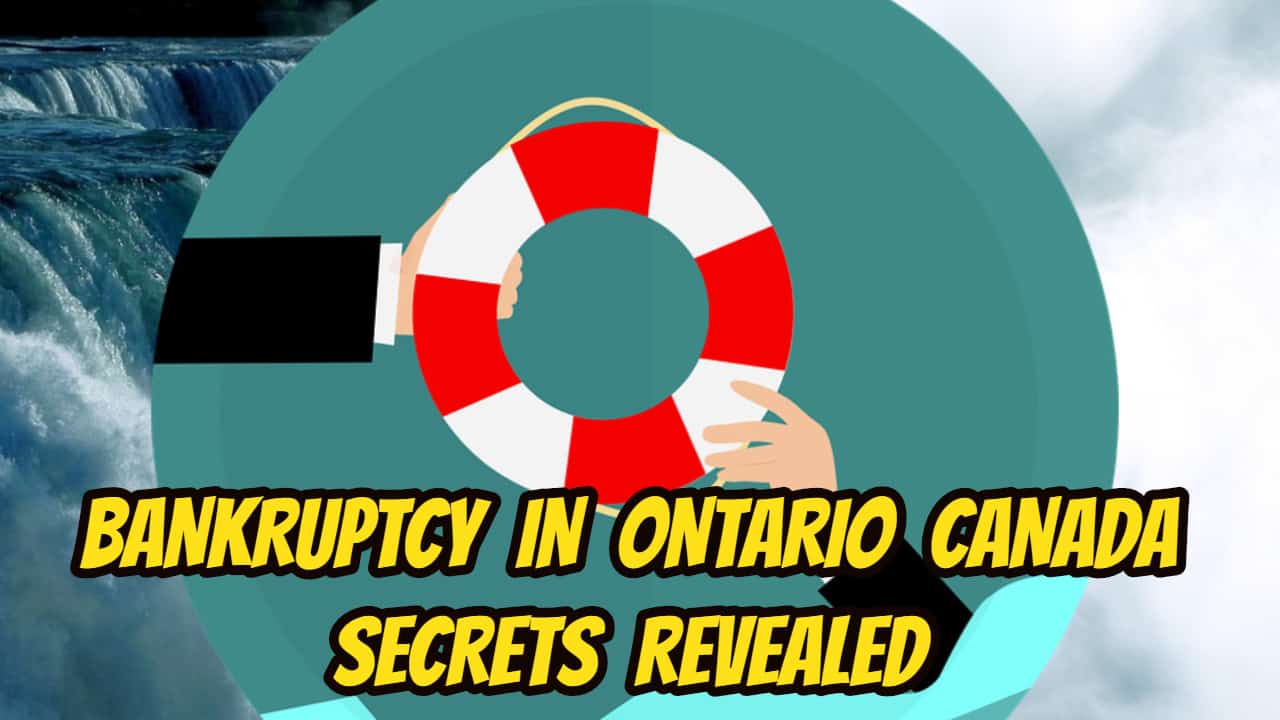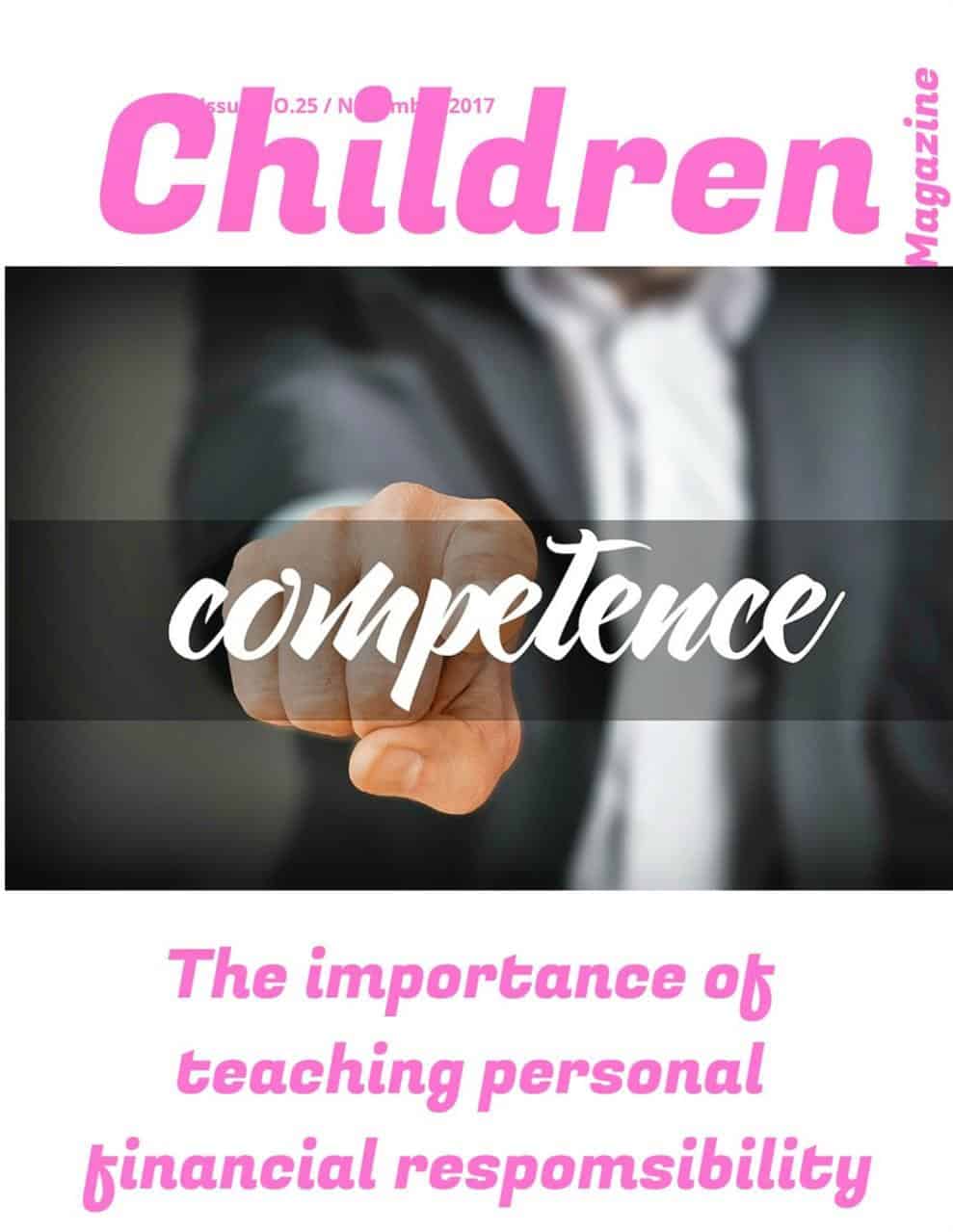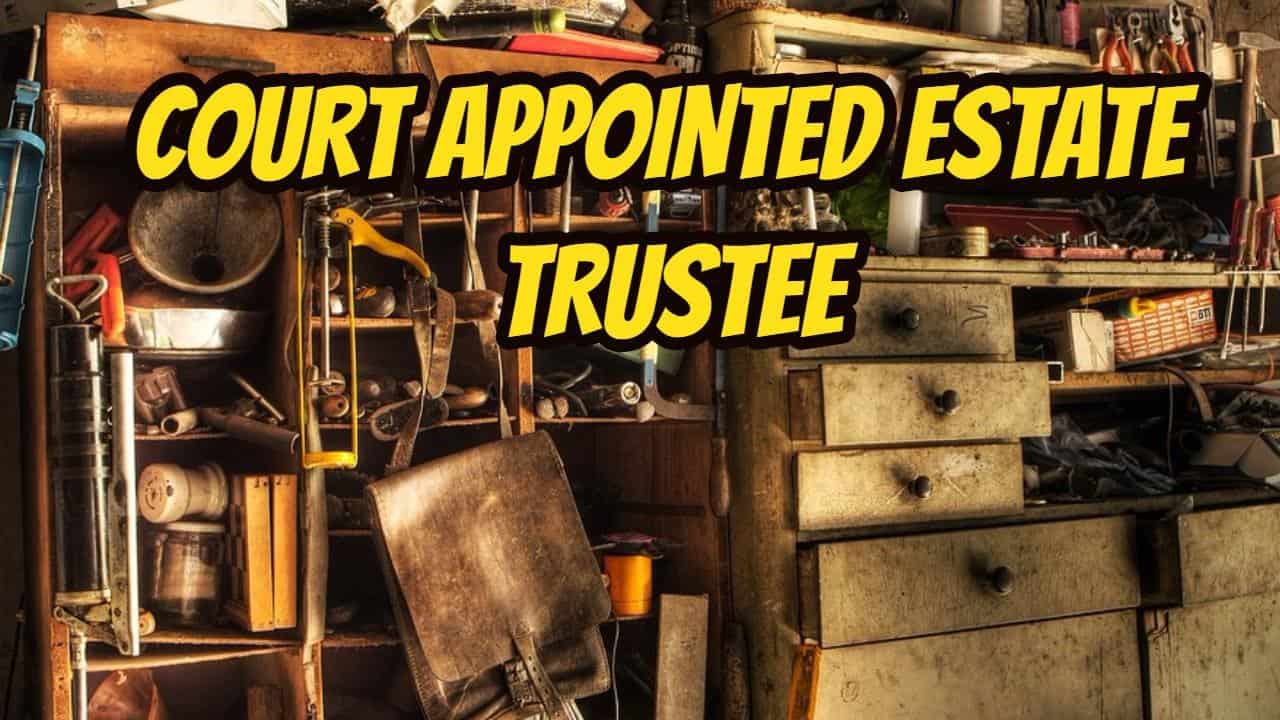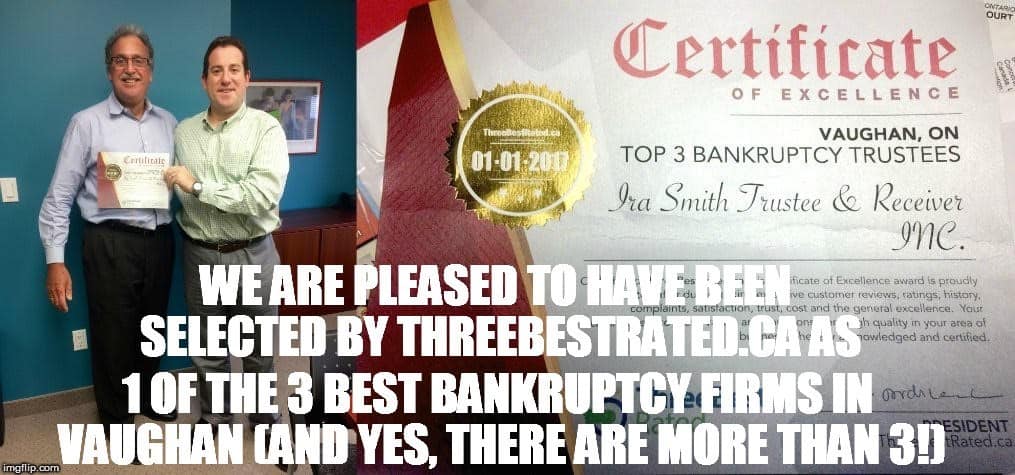We hope that you and your family are safe, healthy and secure during this COVID-19 pandemic.
Ira Smith Trustee & Receiver Inc. is absolutely operational and Ira, in addition to Brandon Smith, is readily available for a telephone consultation or video meeting.
A credit score in Canada: Can car insurance companies use your credit score?
According to the CBC News show “Marketplace” in 2010, home insurance rates can be influenced by a person’s credit score in Canada. A number of people experienced doubled insurance premiums after their insurance company included credit scores in calculating risk.
Consumer credit scores are portrayed positively by those who make use of it. Insurers only check your credit score to determine the best premium for you, according to Desjardins. The Cooperators offer a different perspective. The credit score reflects a person’s financial responsibility and behaviour. The issue is undoubtedly contentious.
In Ontario, as elsewhere in the country, credit scoring has been controversial. In this Brandon Blog, I discuss the recent request by certain auto insurance companies in obtaining consent to check a New Brunswick resident’s credit score in Canada when determining auto insurance rates.
New Brunswick has Canada’s highest rates of personal insolvency and some of its lowest credit scores
There are two Canadian credit bureaus that perform credit scoring in Canada, Equifax and TransUnion. Credit reporting agencies track your credit history by tracking consumer borrowing and payment histories. Credit scores in Canada are derived from these activities.
In Canada, two major credit bureaus report credit scores between 300 and 900. It is through this report that lenders determine whether you have good credit. You are more likely to get credit and have low interest rates if your credit score is high. A credit score in Canada at a high level is therefore beneficial.
What is a good credit score in Canada? You can get a pretty good idea of what they are by looking at the following list:
- 740 plus Excellent
- The 700 to 740 range is a very good score
- A score of 680 to 700 is considered good
- 600 to 679 Fair
- Below 600 Poor
Missing payments or maxing out your credit card can result in a bad credit score. As a fintech company, Borrowell Canada represents multiple lenders in Canada that issue credit cards and make loans to individuals based on their respective credit score in Canada. They became the first business in Canada to offer free credit scores and credit reports. Borrowell’s New Brunswick users have an average credit score of 634.
New Brunswick has the lowest average credit score in Canada. Adults in New Brunswick deal with financial problems at a higher rate than anywhere else in Canada. New Brunswick is currently the province with the highest bankruptcy rates for consumers.

Are bills up to date? New Brunswick auto insurance companies are interested in your credit score
According to insurance companies, studies show bad credit drivers are more likely to have an accident than those with similar driving records, and they want premiums in New Brunswick to reflect that. Several insurance companies in New Brunswick recently gained approval to ask for the introduction of credit scores when setting auto premiums for insurance.
The insurance companies claim studies show that motorists with bad credit are more likely to get into accidents than those with similar driving records, and they want New Brunswick premiums to reflect that.
In Canada, insurance companies believe your credit score in Canada is an accurate predictor of risk and therefore future claims. As a result, policyholders are said to be given rates based on the justest risk segmentation. The application they submitted for approval argued this.
A policyholder will be charged more if they are likely to generate the highest costs than a policyholder who is likely to generate lower costs, according to the New Brunswick Insurance Board. According to the board, it was satisfied there is a relationship between bad credit and bad driving and, as a result, granted the right to set rates using a person’s credit score in Canada.
As part of the risk assessment, a credit score raises a number of concerns:
- What will the insurance companies do if New Brunswick residents refuse to have their credit score used?
- For insureds with low credit scores and limited resources, insurance may be harder to obtain and more expensive.
- Is an individual’s driving record more indicative of risk when it comes to car insurance than their credit score in Canada?
- Suppose you are a young adult, new to Canada, unemployed, or barely getting by? A low credit score may make it harder for you to get to school, work, or a doctor’s appointment.
A credit score in Canada: Are insurance companies allowed to check credit scores?
Are the rules the same in all the Canadian Provinces? No, they are not. If you live in a certain province, your credit score may also affect your monthly premium. Those who live in Ontario or Newfoundland and Labrador can breathe easier. In these two provinces, auto insurance companies are not allowed to use your credit score in Canada as there is a ban on insurance companies doing so.
As of spring 2019, the Progressive Conservative Party announced plans to allow companies to ask you for your credit score in exchange for a better rate. It hasn’t happened yet. Premier Ford’s plans may have been thwarted by the COVID-19 pandemic!
It is already the case in Nova Scotia, though you cannot be denied coverage if you refuse. In March 2021, the province’s insurance regulator approved RSA Canada’s request to offer discounts to auto policy applicants based on their credit scores.
In Alberta, insurers are required to ask for your consent before looking at your credit score, and they can’t use it if you only want the most basic plan.
Business is regulated by the provincial government in Manitoba and British Columbia. Manitoba Public Insurance and Insurance Corporation of British Columbia do not list credit scores among their criteria.
As for Saskatchewan, it’s the same story with Saskatchewan Government Insurance (SGI). Despite the fact that drivers are required to get basic coverage through SGI, you might face a credit check if you choose private company coverage.
Quebec, New Brunswick, and Prince Edward Island don’t have any laws forbidding the practice, but it was not common in the two Maritime provinces until the recent change in New Brunswick.
In addition to your driving history, insurance companies also consider your location, driving experience, and the type of car you drive when assessing your accident risks.
We also have a consumer watchdog called the Insurance Bureau of Canada (IBC). The code has been published and 85% of Canada’s car and home insurance companies have signed on.
There are a number of friendly ground rules:
- Asking for your permission prior to checking your credit score in Canada.
- Do not cancel or deny your insurance if you do not consent.
- In the absence of much credit history, calculating your premiums using other relevant information.

credit score in canada
A credit score in Canada: Auto insurers’ interest in N.B. credit scores is bad news for many
I hope this credit score in Canada Brandon Blog was informative. The auto insurers’ interest in New Brunswick credit scores is bad news for many. But if you have a low credit score and too much debt, wherever you live in Canada, you are considered insolvent. There are several insolvency processes available to you. It may not be necessary for you to file for bankruptcy.
If you are concerned because you or your business are dealing with substantial debt challenges, you need debt help and you assume bankruptcy is your only option, call me.
It is not your fault that you remain in this way. You have actually been only shown the old ways to try to deal with financial issues. These old ways do not work anymore.
The Ira Smith Team utilizes new modern-day ways to get you out of your debt difficulties with debt relief options as an alternative to bankruptcy. We can get you the relief you need and so deserve. Our professional advice will create for you a personalized debt-free plan for you or your company during our no-cost initial consultation.
The tension put upon you is big. We know your discomfort factors. We will check out your entire situation and design a new approach that is as unique as you and your problems; financial and emotional. We will take the weight off of your shoulders and blow away the dark cloud hanging over you. We will design a debt settlement strategy for you. We know that we can help you now.
We understand that people with credit cards maxed out and businesses facing financial issues need a realistic lifeline. There is no “one solution fits all” method with the Ira Smith Team. Not everyone has to file bankruptcy in Canada. The majority of our clients never do as we know the alternatives to bankruptcy. We help many people and companies stay clear of filing an assignment in bankruptcy.
That is why we can establish a new restructuring procedure for paying down debt that will be built just for you. It will be as one-of-a-kind as the economic issues and discomfort you are encountering. If any one of these seems familiar to you and you are serious about getting the solution you need to become debt-free, contact the Ira Smith Trustee & Receiver Inc. group today.
Call us now for a no-cost consultation.
We hope that you and your family are safe, healthy and secure during this COVID-19 pandemic.
Ira Smith Trustee & Receiver Inc. is absolutely operational and Ira, in addition to Brandon Smith, is readily available for a telephone consultation or video meeting.






 ToToronto real estate: Introduction
ToToronto real estate: Introduction








